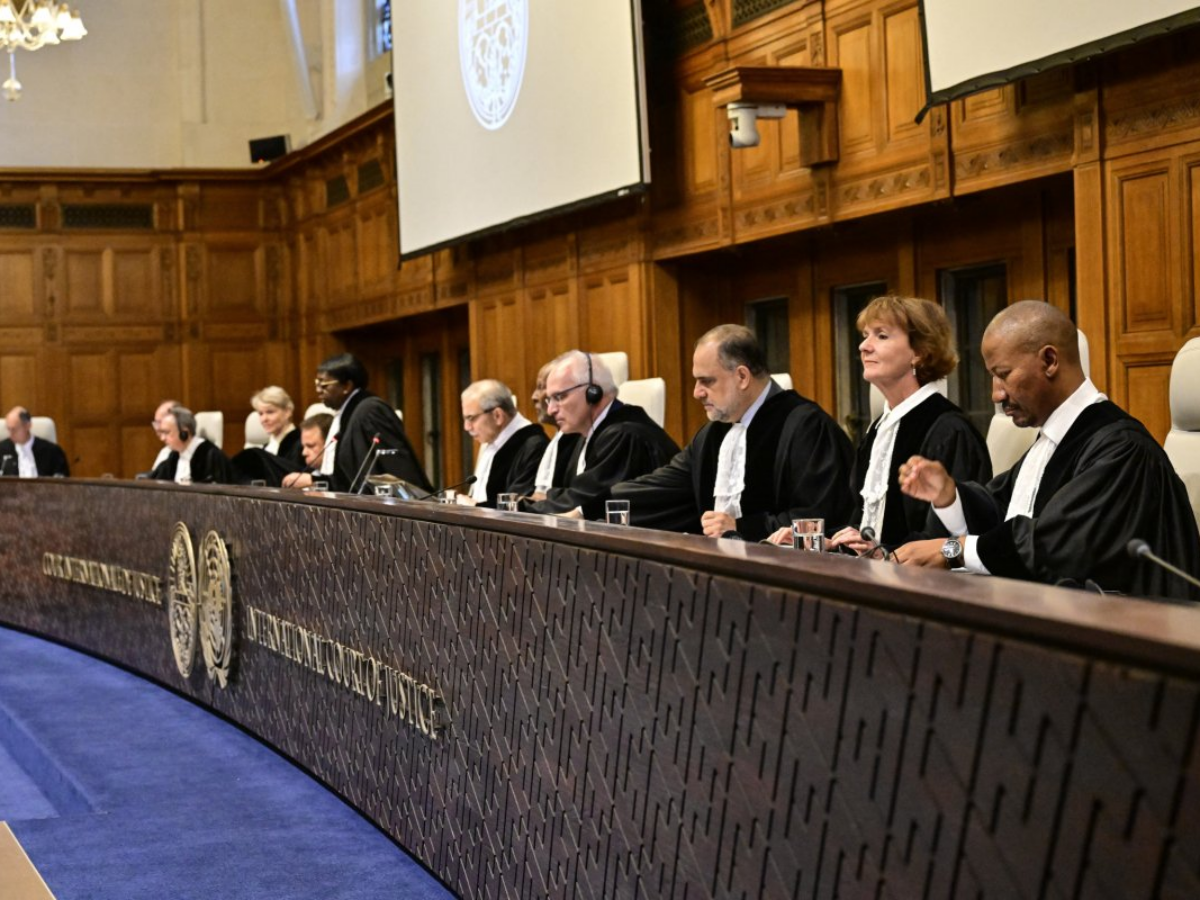The International Court of Justice at The Hague ordered Israel to halt its military operation in Rafah on Friday, saying it was “not convinced” that Israel was doing enough to evacuate Palestinian civilians from the southern Gaza city where more than a million people are sheltering.
The ICJ, colloquially known as the World Court, issued several directives to Prime Minister Benjamin Netanyahu‘s government: reopen the Rafah border crossing with Egypt to allow large-scale humanitarian aid, grant access to Gaza for investigators and fact-finding missions, and provide a progress report to the court within a month on implementing these measures.
Rulings from the court are considered binding, but there is no mechanism of enforcing them.

The current president of the ICJ, Judge Nawaf Salam, who led Friday’s hearing, said that the court has observed “with regret that the catastrophic living conditions of people in the Gaza Strip have deteriorated further,” especially due to a prolonged and widespread lack of food.
The U.N. court noted that almost 800,000 Palestinians have been displaced from Rafah since Israel began encroaching on the city two weeks ago. In its ruling, it quoted U.N. officials warning of the dangers of such an operation to the civilian population.
Minutes after the ruling, Netanyahu announced a special ministerial meeting to decide on a response. Opposition leader Yair Lapid criticized the decision, stating:
“The ICJ’s failure to directly link the end of the military operation in Rafah to the release of the hostages and Israel’s right to defend itself against terror is an abject moral failure.”
Hamas expressed support for the ruling but called for further actions to lift the siege on Gaza and end the Israeli military operations entirely.
The ruling stems from the pending case against Israel that’s been brought by South Africa under the Genocide Convention, created in 1948 after the Holocaust. South Africa alleges that Israel’s military action in Gaza, following the Oct. 7 attack by Hamas that killed 1,200 people, amounted to a systematic killing of Palestinians because of their ethnicity.
Israel, along with the U.S., has strongly denied that its military operation in Gaza is a genocide.

In late March, the ICJ denied South Africa’s request for an immediate ceasefire in Gaza. However, the court noted that “the catastrophic living conditions of the Palestinians in the Gaza Strip have deteriorated further” since its last order in late January.
Despite that ruling, the ICJ stopped short of granting all of South Africa’s requests. The court reiterated its previous orders, which called on Israel to allow more humanitarian aid into Gaza and to take measures to prevent acts of genocide.
The ICJ’s move against Israel is another diplomatic blow for Benjamin Netanyahu, coming days after the International Criminal Court (ICC) sought arrest warrants for both him and three top Hamas leaders—Yahya Sinwar, Mohammed Deif, and Ismail Haniyeh—over their conduct in the seven-month-old conflict.
In response, Israel strongly condemned the ICC decision and Netanyahu labeled the move a “complete distortion of reality,” reiterating his commitment to continuing the military campaign in Gaza.
Then on Wednesday, Ireland, Spain and Norway announced their intention to officially recognize the State of Palestine, in what represents a rebuke of deepening Israeli opposition to the two-state solution—the end goal of the stalled Arab-Israeli peace process—set out by the 1993 Oslo Accords.


